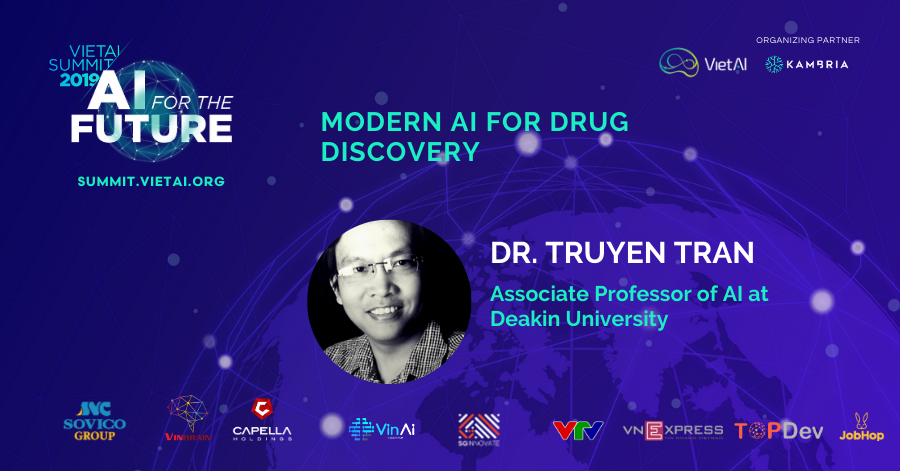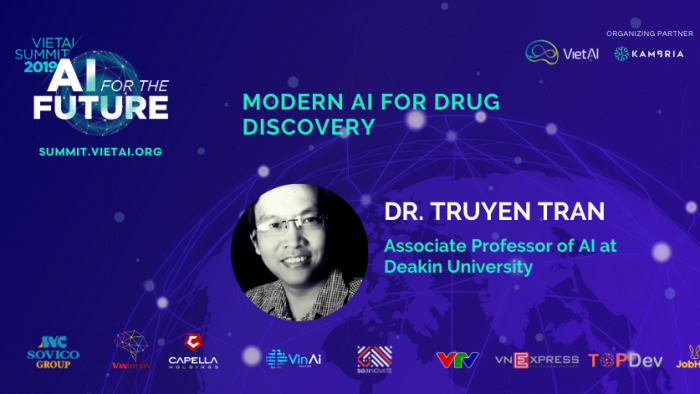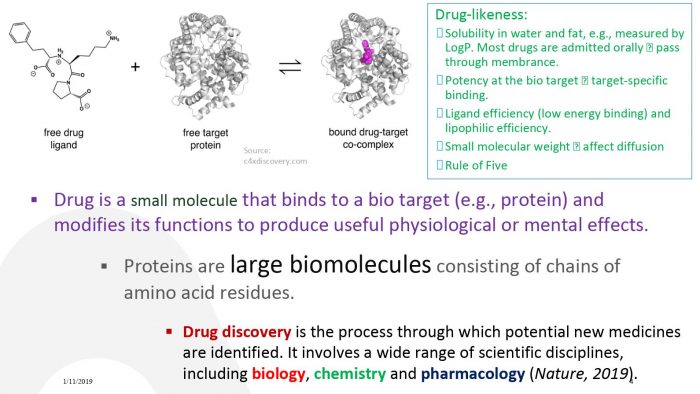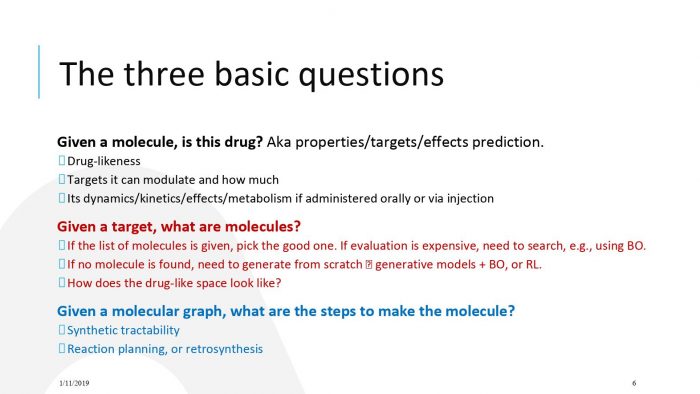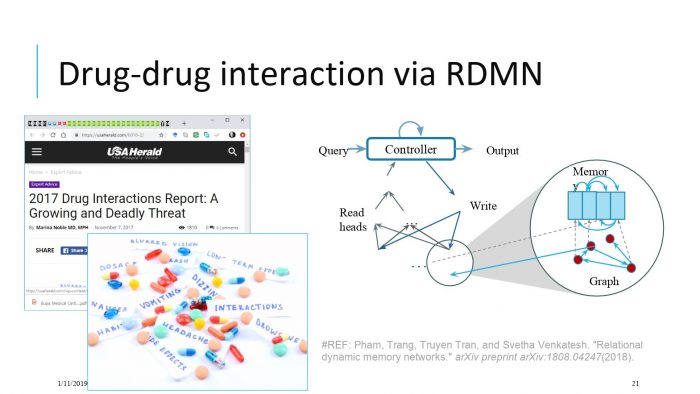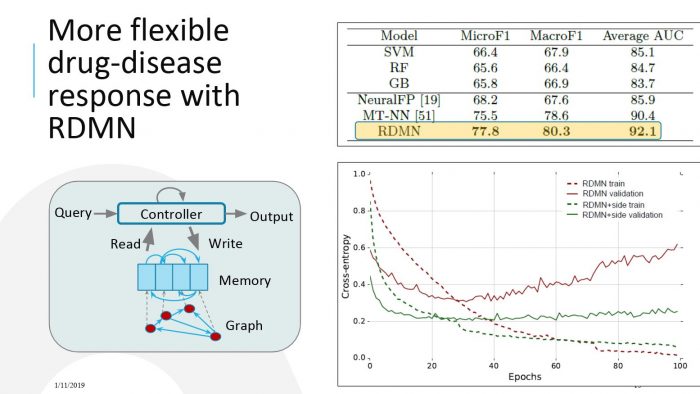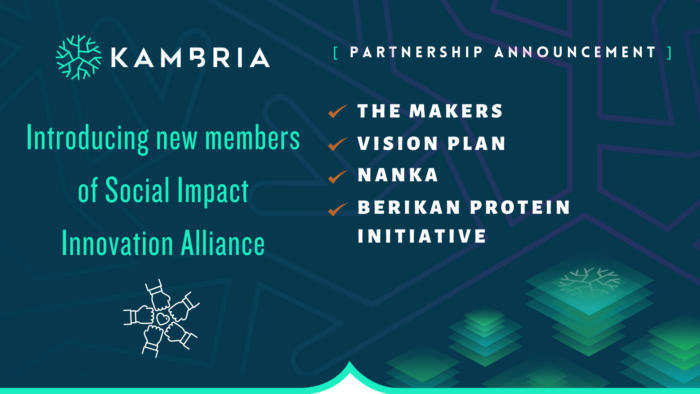As part of the VietAI Summit 2019, Dr. Truyen Tran gave a presentation about how modern AI can be used for drug discovery.
Modern AI for Drug Discovery
Dr. Truyen Tran - Associate Professor of Artificial Intelligence at Deakin University
Abstract: Powered by deep learning, modern AI has enjoyed great successes in cognitive domains such as computer vision and languages where humans can naturally perform well. AI is now accelerating fields that traditionally require deep expertise such as physics, chemistry and biomedicine.
This talk provides an overview of how AI is speeding up and lowering the cost of drug discovery. This includes how AI/ML can help in a wide range of areas such as novel molecule identification, drug design, synthesis planning, drug-drug interaction, drug-target binding, drug repurposing, estimating cell response, and safety assessment. We will also discuss the relevant ML models for graph classification, molecular graph transformation, drug generation using deep generative models and reinforcement learning, and chemical reasoning.
Today, we will learn how modern AI can contribute to fields that require deep expertise. Biomedicine, and how modern AI can be used to speed up drug discovery, and significantly lower the cost for research; which ultimately can lead to lower drug prices. Dr. Truyen Tran, associal professor of AI at Deakin University is an AI expert, begins his talk with breaking news out of Insilico Medicine, where deep learning algorithms successfully enabled rapid identification of potent DDR1 kinase inhibitors, creating the drug in a lab, and testing it on mice. In just 46 days, their AI was able to identify and create the groundbreaking drug - which set record times. Normally these drugs would take years to develop.
Drugs are defined as a small molecule that binds to a bio target (like protein) and modifies its functions to produce useful physiological or mental effects. Dr. Tran explains how drugs affect proteins, which are simply larger bio-molecules made up of amino acids. Because this is such a complex process, it is difficult to comprehend the level of complexity and knowledge required to discover and create a drug. Drug makers must have a deep understanding of biology, chemistry, and pharmacology to understand how certain drugs will affect the protein cells in order to successfully create a medicine.
Another important factor in the creation of drugs is the time and cost that it takes to create new drugs. Typically, drugs costs millions of dollars to develop and can take in excess of 10 years to create. Thousands of molecules must be created, and only very few end up successfully making it to human trials for the opportunity to become approved for human consumption to the public.
Researchers are now using AI to help tackle these important issues; however, this is no simple feat. In order to begin the journey to creating a new drug, we must begin with three important questions:
Using modern technology, researchers are now able to break down molecules into data structures that computers can read, analyze, and create predictions for. There are several techniques to accomplishing this (vectors, strings, graphs). These models can then be fed into deep learning and machine learning algorithms to process and assist researchers in creating new drugs. This technology is useful to predict how certain molecular structures will interact with each other and how they are assimilated (if at all) into the human body.
The next phase, and perhaps the most important, is to use AI to predict how these theoretical molecule structures will interact with the proteins in question. Being able to accurately predict the effectiveness of drugs can mean the difference between millions of dollars and years of research time. This process is done by through the vast amounts of data given to this AI being processed to determine a drug’s affinity. Dr. Tran’s unique solution, RDMN, allows researchers to input a large variety of queries to create highly flexible AI that allows researchers to create an array of graphical data for scientists to analyze and has outperformed all previous techniques in accurately predicting the outcome of new drugs.
Additionally, AI can be used to determine what drugs can be used to cure other ailments, as well as determining what drug interactions they will have with other molecules. This process usually takes years to accomplish. By utilizing AI, we can input essentially an unlimited number of data points to determine what drugs can be used for, and how they will interact with other drugs - which ultimately can save lives.
For more details, be sure to watch Dr. Tran’s information-packed presentation, which you can find at https://www.youtube.com/watch?v=6wTZizcqPTs&t=2s
To access all of Dr. Tran’s slides for this presentation, head over to Kambria’s Resource Library. The Resource Library can be accessed for free by community members who own KAT tokens. Simply register for the Kambria platform by clicking “Login/Register” in the top right-hand side of the screen. Then choose “Library” to access materials from the Summit.
About VietAI Summit 2019
More than 450 people attended VietAI Summit 2019, “AI for The Future,” organized by VietAI and Kambria. With a program featuring many reputable guest speakers from big tech companies such as Google Brain, Toyota Research Institute, Kambria, NVIDIA, VinAI Research, Vinbrain, Deakin University, and Vietnam National University HCMC, we received many fresh insights into the exciting state of AI research and application, not just in Vietnam, but also around the world. To receive an invitation to VietAI Summit 2020, Like the VietAI Facebook page and Like the Kambria Facebook page.
